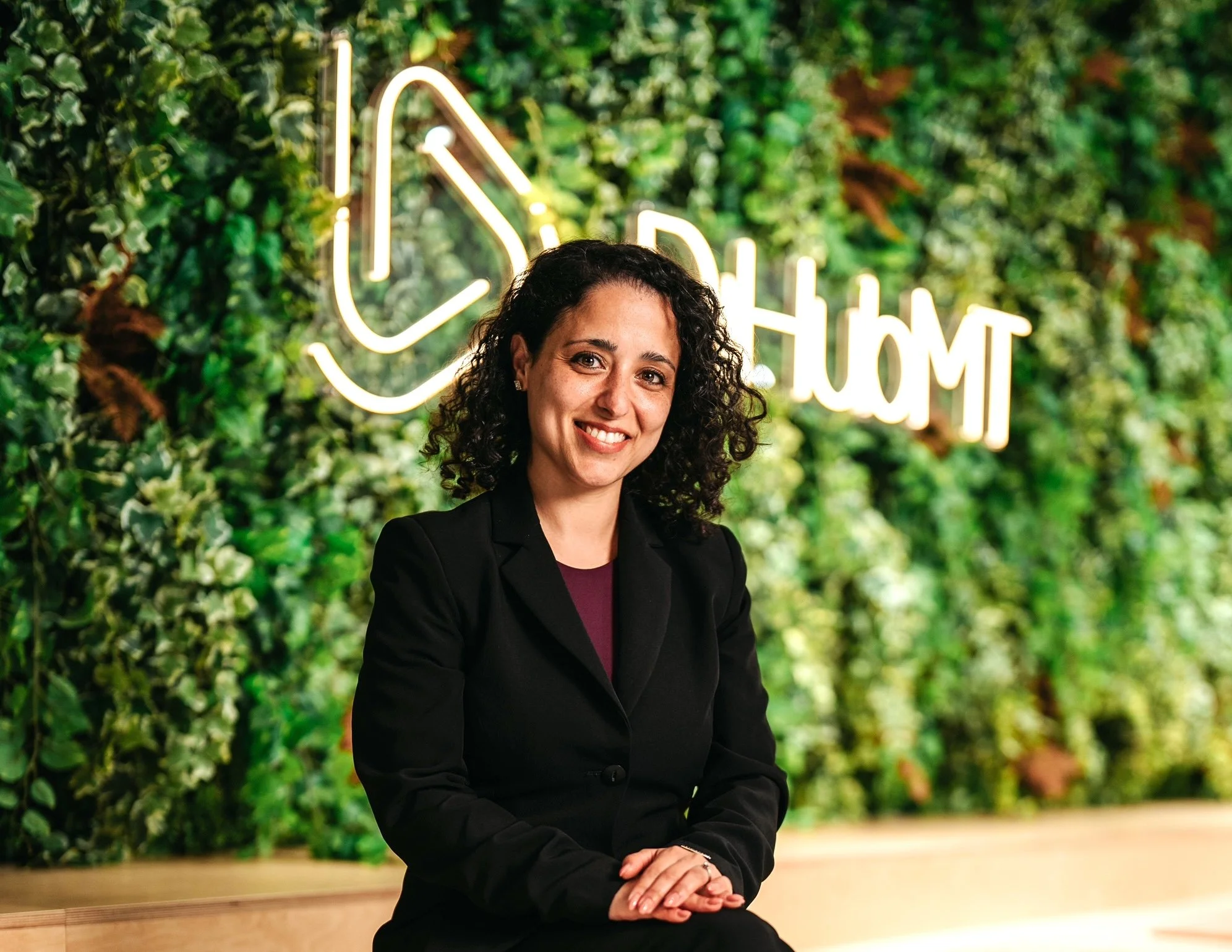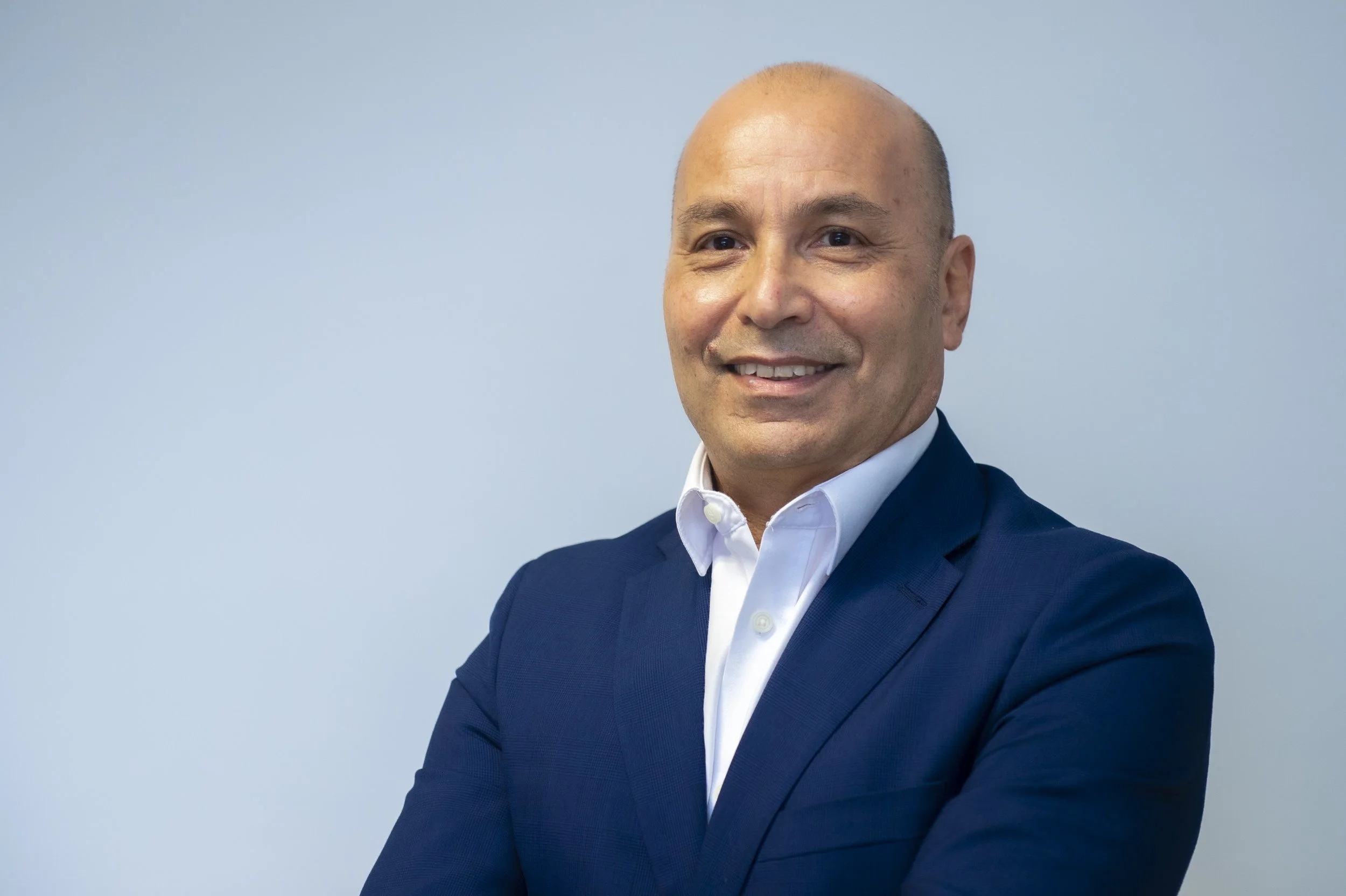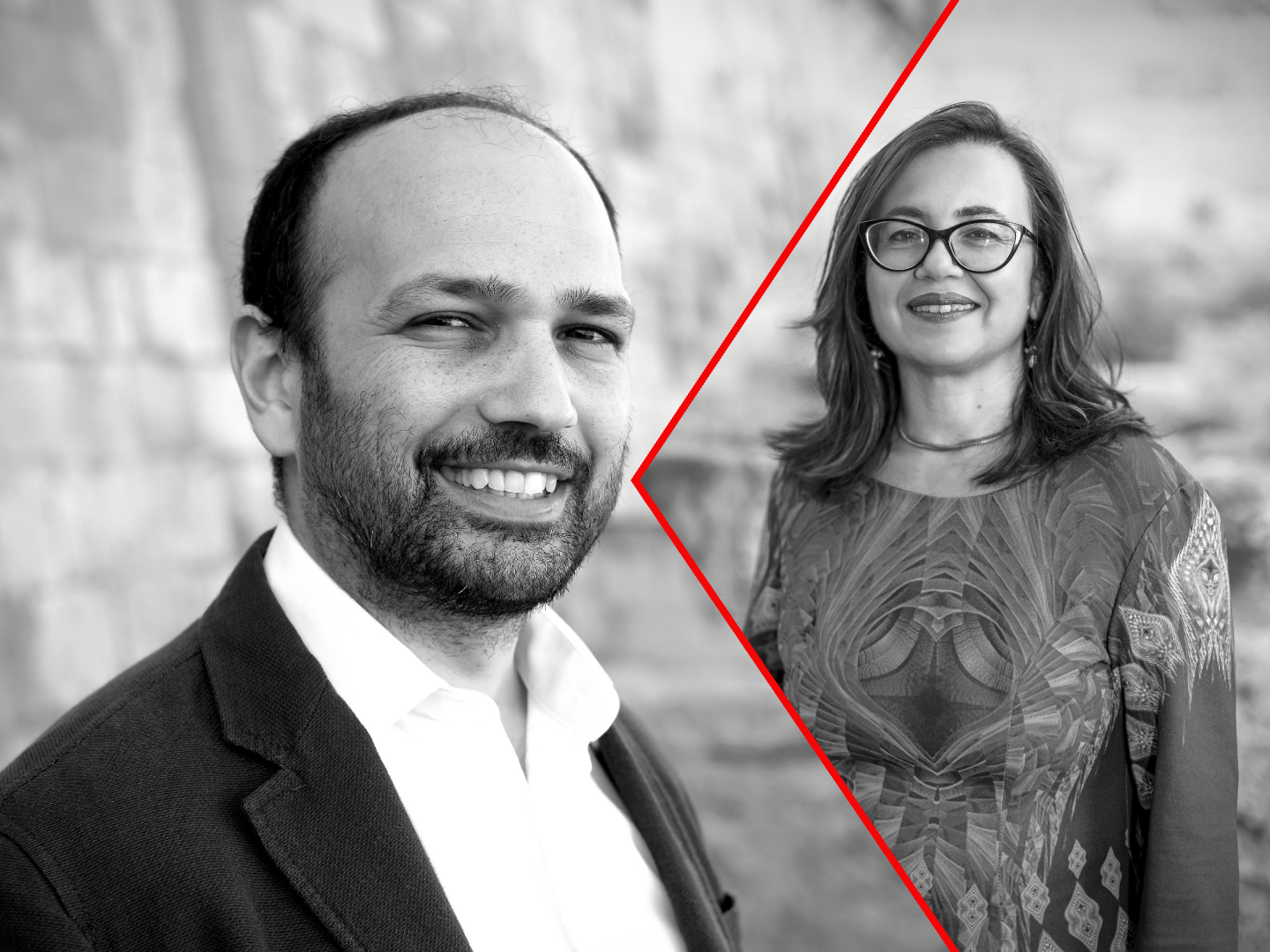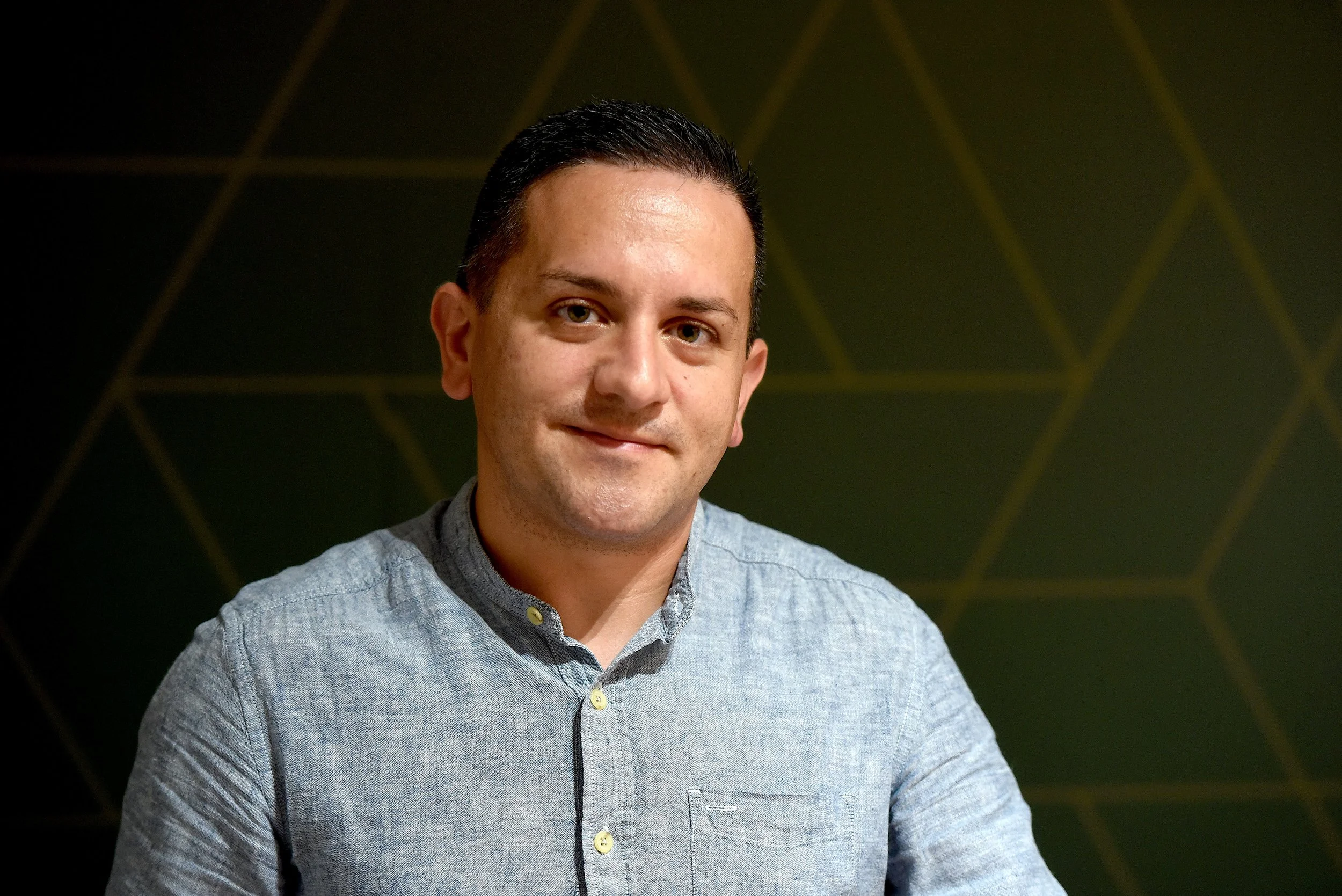Digital decade: How is Malta faring?
From top clockwise: Bernard Montebello, Kenneth Brincat, Jean Marie Mifsud, Gavril Flores, Carm Cachia (centred)
As the EU pushes ahead with its Digital Decade goals, Vanessa Macdonald speaks to MDIA's leadership about Malta's progress, challenges, and ambitions—from AI and cybersecurity to digital literacy and innovation hubs. Is the island keeping up with Europe's tech transition, or still playing catch-up?
Digitilisation, digitalisation, digitalisation. From e-commerce to e-government, it is being touted as the solution to everything. But is it? Well, the European Commission certainly thinks so.
Its Digital Decade initiative aims to drive transformation by 2030, focusing on connectivity, digital skills, digital business, and digital public services. Its report for 2025 shows how member states are progressing towards their targets, a project that has been earmarked for an impressive €289 billion investment.
There is still a way to go: according to data from the EU Industrial R&D Investment Scoreboard, the US is still the leader in digital R&D, accounting for around 40% of all digital companies and 53% of total R&D investment among those identified in 2023.
The EU, in its report, earmarks several areas where member states need to do more on various performance indicators.
The competitiveness of the EU is an important aim, and the limited uptake of digitalisation definitely has a negative impact on growth. The intention is for more than 90% of SMEs to have at least a basic level of digital intensity. Although progress is being made – 72.9% of SMEs in 2024, up from 69.0% in 2022 – this is not sufficient. Only two-thirds of SMEs will meet the target by 2030.
So, where does Malta stand?
Malta, too, has put digitalisation at the core of its innovation programme, and the government set up the Malta Digital Innovation Authority a few years ago. Its teething phase saw it evolve from the blockchain regulator in 2018 to a technology-neutral one. And since then, the MDIA has built up several competencies, from issuing cyber certification to a mandatory framework for Artificial Intelligence and soon cyber resilience.
There is also an overlap with some of the entities it regulates – for example, those involved in financial services. This has been resolved very effectively by having agreements with the other regulators, for example, the Malta Financial Services Authority, which ensures collaboration.
CEO Kenneth Brincat
Its CEO, Kenneth Brincat, understands that the role of the regulator has to go well beyond supervision to offering a support structure and promoting digital literacy. For example, the MDIA has been given an important role to play in the government's Digital Education Strategy.
Indeed, one of the essential metrics for Malta is the number of skilled ICT professionals. Malta improved from 4.7% in 2024 to 5.2% in 2025, and is aiming for 8% by 2030, not far behind the EU target of around 10%.
This is an area that is growing dramatically: European agency CEDFOP forecast recently that Maltese ICT employment would increase by 21.9% between 2020 and 2030, more than twice the growth rate forecast for the EU27.
Clearly, the island's size limits the number of locals available in the workforce. Although the number of ICT graduates is increasing, he believes that ICT should be viewed not just as a career, but as a skillset that can benefit anyone, regardless of their job.
"Having people skilled in technology gives a competitive advantage to a country, and the MDIA is tackling this through courses offering to all ages, at every level of competence," he said, noting that most of the courses were fully booked, a sign of high demand.
Chief Innovative Technology Officer Jean-Marie Mifsud
This is an area that falls under the remit of Chief Innovative Technology Officer Jean-Marie Mifsud.
"We are here to encourage not only children but also businesses to consider digital innovation, and we tested various pilot projects across six public bodies, centred around artificial intelligence, which were very successful," Dr Mifsud said.
Indeed, one area that stands out about future potential for Malta is artificial intelligence, which Mr Brincat believes should be seen as a powerful tool, rather than causing educators to focus on the fear of plagiarism.
The EU is falling short of its targets in this area. AI use by enterprises rose significantly to 13.5%, but is only projected to reach 35.9% by 2030, well below the Digital Decade target of 75%. Thankfully, this was one area where Malta fared particularly well – it reached 17.3% in 2025, with a target for 2030 of 27.2%.
Head of Malta's European Digital Innovation Hub (DiHubMT) Bernard Montebello
One of the EU's projects as part of its Digital Decade initiative was the setting up of Digital Hubs aimed at SMEs and start-ups. The MDIA opened the doors to its hub in September 2024, one of 230 opened across 20 countries. The entrance along the ring road of Mrieħel gives no hint as to what lies beyond. The floor dedicated to the hub, managed by Bernard Montebello, is – well, the only word to describe it is 'funky'. It has an auditorium seating 55, meeting rooms and work spaces, and laboratories offering 3D printing, rendering and design, and Internet of Things. It will also host a high-performance computer.
It already serves a community of 200 tech companies, and 30 SMEs and start-ups use its space regularly.
So much for the positive side of the digital transformation. What about the downside?
A recent OECD project about financial literacy initiatives, done through the MFSA, found that some of the main topics tackled were fraud and scams. Dr Mifsud recognises the need for the public to develop critical thinking skills, enabling them to distinguish between fake and authentic information.
"Of course, we have to look at the impact of having this technology, but it is also important to educate people of all ages about the risks," she said.
Malta is also trying to promote digitalisation as a way to attract investors, which falls under the remit of Gavril Flores, the chief officer responsible, among other things, for business development.
"It is important for the MDIA to reach out to potential investors, and we have been joining up with other government agencies to deliver a consolidated message across international fairs, for example," he said.
He too referred to the MDIA's journey over the past years and how it has evolved.
"It was not like financial services or pharmaceuticals, for example, where companies were expected to be regulated. Now they were facing a scenario where regulation was mandatory, which was quite a new transition for them!" he said.
Chief Strategy, Policy and Governance Officer Gavril Flores
However, the 'enabling' approach adopted also means that companies have peace of mind about conformity of standards, as well as innovative options such as using the national sandbox to try out new technology.
Again, the negative side of this technology raised its head. According to the European cybersecurity agency (ENISA), the top threat in cybersecurity for 2025 is related to supply chain compromise in software dependencies. In Malta's Cybersecurity Index Report, Malta attained a score of 70% for the indicator on "Supply chain management by essential and important entities". The MDIA has been designated as a market surveillance authority for cyber resilience to minimise such risk.
It is a compliance market worth over €2 billion annually. However, although numerous initiatives are already in place in Malta, more capacity is needed nationwide, Mr Flores said, adding that here too the MDIA is playing a role.
"The MDIA is working to put Malta at the forefront of AI, cybersecurity and data innovation," he added.
MDIA Consultant
Digital literacy remains a top priority for Carmel Cachia, former Chief Administrator of the eSkills Malta Foundation, now in the process of being integrated into the MDIA. As a consultant to the Authority, Mr Cachia continues to channel his deep expertise and long-standing commitment to addressing the growing demand for digitally skilled professionals.
Almost two-thirds of the population have at least basic skills, with the target for 2023 set at 75%, slightly below the EU's target of 80% by 2030. This is an important metric, as while those who have basic knowledge can be upskilled through on-the-job training, for example, the third who do not even possess basic skills would find it difficult to get a foothold.
"We rank 9th for basic skills, ahead of some of the bigger member states," he said, noting that the country is thankfully working its way up the rankings.
Malta's performance in various metrics is improving (as are those in other member states). For example, Malta was ranked 11th in the use of the internet, which implies basic skills, for those aged between 16 and 74, above the EU average.
"Malta has seen a significant increase in the number of companies setting up locally, which reflects the growing demand for digital talent," Mr Cachia explained. "However, this demand continues to outpace the available local supply. Realistically, Malta cannot meet this need solely with its workforce, which is why attracting digital talent from abroad is essential. But in doing so, we're competing not only with other EU member states, but with the global market."
Another area of concern for Mr Cachia is the digital transformation of SMEs, a key recommendation under the EU's Digital Decade policy.
"Encouraging smaller local businesses to embrace digital tools is not easy," he admitted. "Many are hesitant, and often unaware of the funding and support available to help them make the transition. The bureaucracy involved can certainly be daunting."
Nonetheless, he remains optimistic: "The administrative burden is a small price to pay when compared to the short and long-term benefits of productivity gains. Today, 80% of the public already believe that digitalisation is making their lives easier, so the interest is there. It's about turning that interest into action."























Malta’s surveillance network is growing—CCTV cameras, biometric ID cards, and facial recognition trials—yet there’s little debate or oversight. Manuel Delia investigates how rapid digital transformation is reshaping governance, redefining citizenship, and eroding privacy under the guise of convenience, safety, and technological progress.